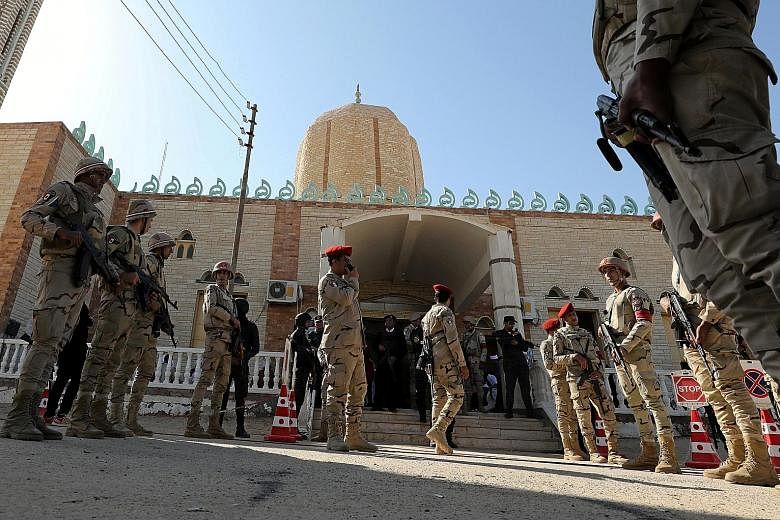CAIRO/JERUSALEM • The militants in Egypt's Northern Sinai had killed hundreds of soldiers and police officers, pledged allegiance to the Islamic State in Iraq and Syria (ISIS), briefly seized a major town and begun setting up armed checkpoints to claim territory. In late 2015, they brought down a Russian passenger jet.
Egypt appeared unable to stop them, so Israel, alarmed at the threat over the border, took action.
For more than two years, unmarked Israeli drones as well as jets and helicopters with markings covered up have carried out a covert air campaign. Some fly circuitous routes to create the impression that they are based in the Egyptian mainland, according to United States officials briefed on their operations.
The campaign conducted more than 100 air strikes inside Egypt, frequently more than once a week - and all with the approval of President Abdel Fattah al-Sisi.
The cooperation marks a new stage in the evolution of their singularly fraught relationship. Once enemies in three wars, then antagonists in an uneasy peace, Egypt and Israel are now secret allies in a covert war against a common foe.
For Cairo, the Israeli intervention has helped the Egyptian military regain its footing in its nearly five-year battle against the militants. For Israel, the strikes have bolstered the security of its borders and the stability of its neighbour.
Their collaboration is the most dramatic evidence yet of a quiet reconfiguration of the region's politics. Shared enemies such as ISIS and Iran have brought the leaders of several Arab states into growing alignment with Israel, even as their officials and news media continue to vilify the Jewish state in public.
US officials said Israel's air strikes have played a decisive role in enabling the Egyptian armed forces to gain an upper hand against the militants. But Israel's role is having some unexpected consequences for the region, including on Middle East peace negotiations, in part by convincing senior Israeli officials that Egypt is now dependent on them to control its own territory.
Both countries have sought to hide Israel's role in the air strikes for fear of a backlash in Egypt, where government officials and the state-controlled media continue to discuss Israel as a nemesis and pledge fidelity to the Palestinian cause.
President al-Sisi has taken even more care, the US officials said, to hide the origin of the strikes from all but a limited circle of military and intelligence officers. The government has declared the North Sinai a closed military zone, barring journalists from gathering information there.
Behind the scenes, Egypt's top generals have grown steadily closer to their Israeli counterparts. Egyptian security forces have helped Israel enforce restrictions on the flow of goods in and out of the Gaza Strip, the Palestinian territory bordering Egypt controlled by the militant group Hamas. Egyptian and Israeli intelligence agencies have also long shared information about militants in both countries.
Israel began its wave of air strikes in late 2015, the US officials said, which they credit with killing a long roster of militant leaders.
Though equally brutal successors often stepped in to replace them, the militants appeared to adopt less ambitious goals. They no longer dared try to close roads, set up checkpoints or claim territory. They moved into hitting softer targets such as Christians in Sinai, churches in the Nile Valley or other Muslims they view as heretics.
Israeli Prime Minister Benjamin Netanyahu said yesterday that Israel would "do whatever is necessary to defend ourselves".
Speaking at the start of a Cabinet meeting, the Prime Minister referred to recent meetings with several world leaders.
"As I also made it clear to President (Donald) Trump and afterwards to European leaders and President (Vladimir) Putin, our presence here is the main element in the Middle East blocking the spread of radical Islam, led by Iran and Islamic State, which also threaten all other elements in the world," he said, using another name for ISIS.
NYTIMES, AGENCE FRANCE-PRESSE

